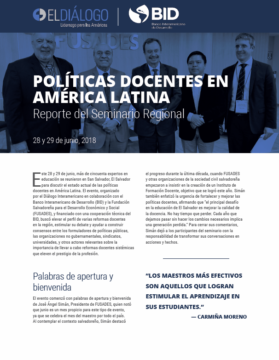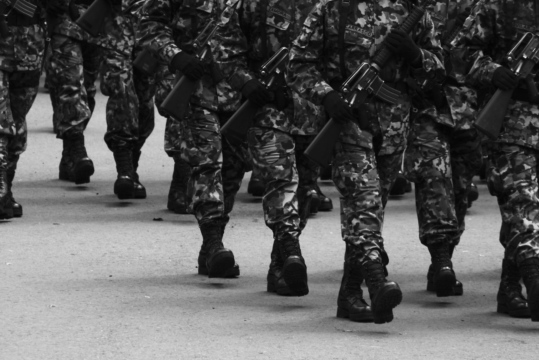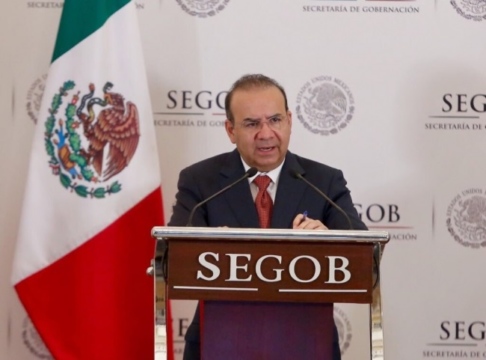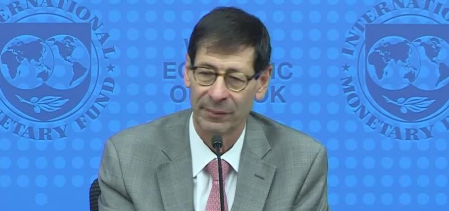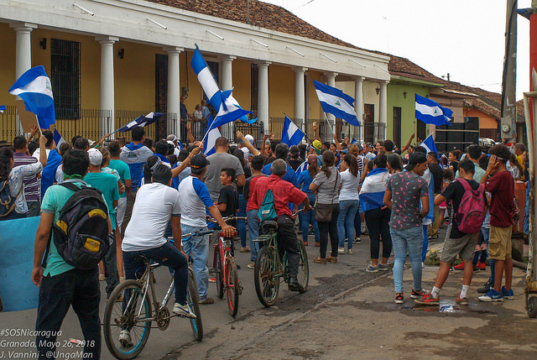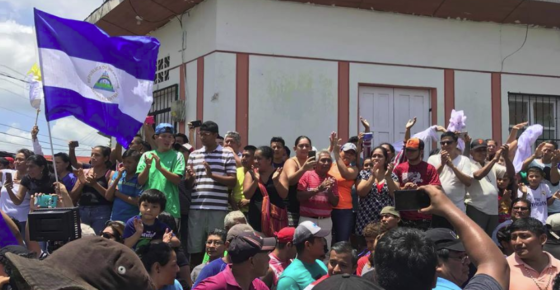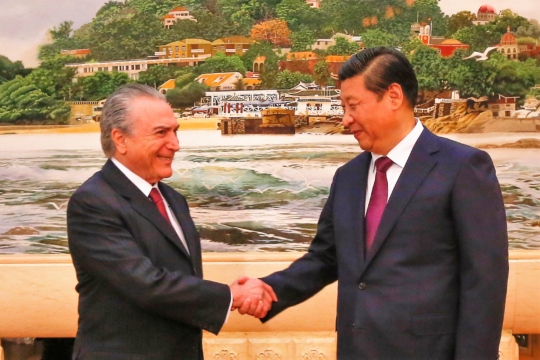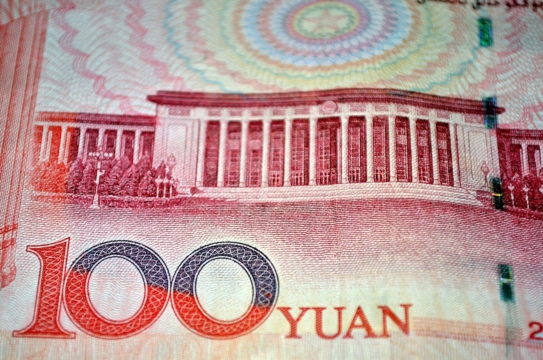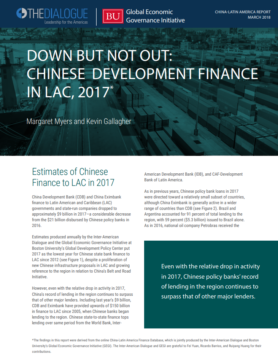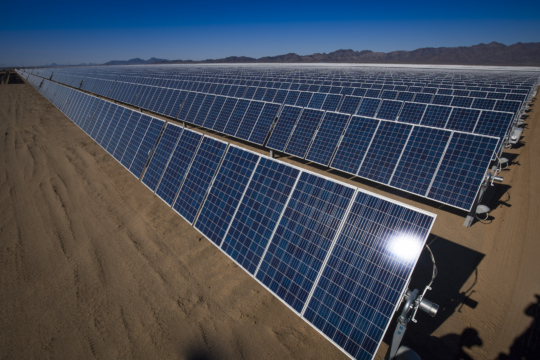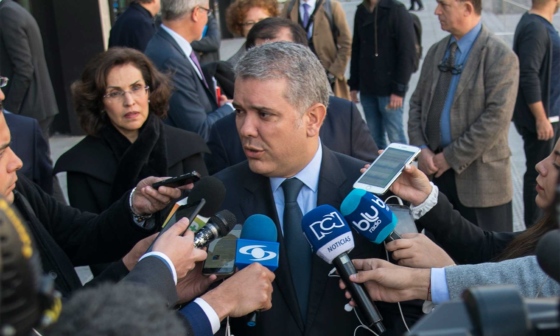
Two Years In, Is Peace Taking Hold in Colombia?
How well is peace taking hold in Colombia, two years after the signing of the peace accord?
How well is peace taking hold in Colombia, two years after the signing of the peace accord?
How big of a problem is hepatitis C in Latin America? What kinds of efforts should countries and the private sector make to fight it?
As the trade war between China and the United States intensifies, how is it affecting Latin American economies?
China this month agreed to extend $5 billion in credit to Venezuela as the South American country faces severe economic problems including hyperinflation and dire shortages of food, medicines and basic goods. Finance Minister Simón Zerpa announced the credit line as President Nicolás Maduro was departing for China to seek…
The Inter-American Dialogue hosted a panel to discuss the opportunities and challenges of developing smart cities in Latin America.
Are teacher policies in Latin America effective? What can countries do to strengthen and support teacher selection, development and performance?
Rebecca Bill Chavez warns in an article for the New York Times on that as we enter a global democratic recession, we must not ignore increasing trends of militarization in Latin America.
Will President-elect Andrés Manuel López Obrador be able to curb Mexico’s growing insecurity?
The IMF lowered its economic growth forecast for the region in July. Will the economy worsen this year, or will there be a turnaround?
Desde el pasado 18 de abril, a consecuencia de una reforma al seguro social, el descontento popular ha escalado en Nicaragua. La respuesta del régimen del Presidente Daniel Ortega ha sido la represión y hasta ahora, alrededor de 300 muertos han sido reportados. Ante la violencia rampante, la comunidad internacional ha manifestado su preocupación y descontento. Manuel Orozco dio una entrevista acerca de los impactos que estas sanciones tendrán en Nicaragua, y de los posibles escenarios futuros en el conflicto.
More than 300 people have died in Nicaragua since anti-government protests broke out in April. Will a resolution come?
La fuerte disminución en el 2017 se debe a que los bancos estatales chinos se abstuvieron de hacer préstamos a Venezuela, de lejos el mayor receptor de financiamiento del gigante asiático en la región desde el 2005.
Chinese investment and lending in the region declined last year, in part reflecting skittishness over the deteriorating situation in Venezuela. Despite the drop, Chinese state-to-state finance continues to outstrip the World Bank, IDB and CAF.
China’s record of lending in LAC continues to surpass that of other banks, even though policy banks issued only $9 billion to the region in 2017.
If the region increases renewables to 80% of the electricity matrix and expands integration, countries can save billions of dollars in investments, avoid blackouts and reduce their greenhouse gas emissions, argue Lisa Viscidi and Ariel Yépez.

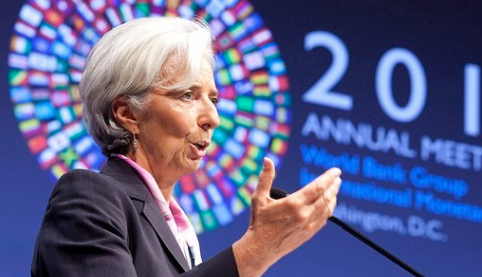
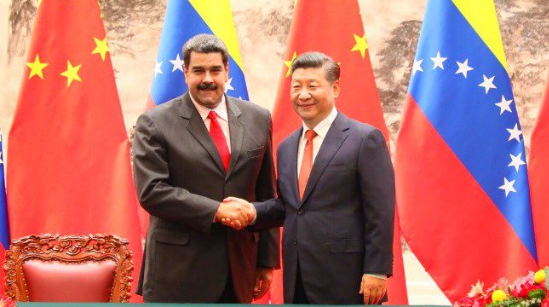
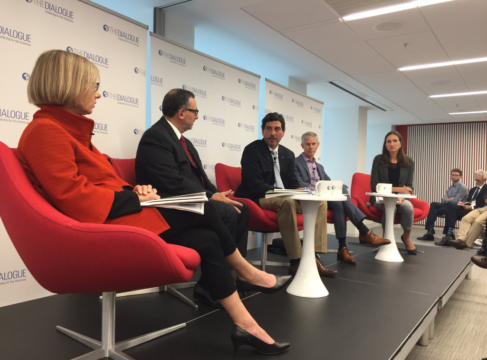 Video
Video
